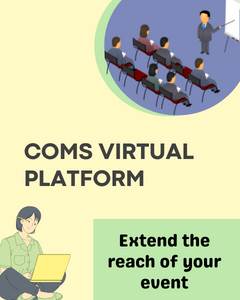Home / Conference Listings / Informatics / Implementation and Applications of Artificial Intelligence / Germany
Conferences > Informatics > Implementation and Applications of Artificial Intelligence > Germany
Select a location
Canada (2) China (1) Croatia (1) Cyprus (2) Germany (10) Greece (3) India (1) Italy (1) Spain (1) Switzerland (1) Türkiye (1) United Kingdom (4) United States (4)
1
Dagstuhl-Seminar — Tensor Factorizations Meet Probabilistic Circuits
01 Mar 2026 - 06 Mar 2026 • Schloss Dagstuhl, Germany
Event listing ID:
1671210
Event website:
2
KI Bootcamp — Generative AI für Angular-Entwickler:innen - KI Bootcamp | März 2026 München
19 Mar 2026 - 20 Mar 2026 • Munich, Germany
Event listing ID:
1687097
Event website:
3
Dagstuhl-Seminar — New Trends in Clustering
22 Mar 2026 - 27 Mar 2026 • Schloss Dagstuhl, Germany
Event listing ID:
1671260
Event website:
4
Dagstuhl-Seminar — Driver State Modelling: Cognitive and Computational Challenges
22 Mar 2026 - 27 Mar 2026 • Schloss Dagstuhl, Germany
Event listing ID:
1671336
Event website:
5
Dagstuhl-Seminar — Autonomous AI Agents in Computer Security
12 Apr 2026 - 17 Apr 2026 • Schloss Dagstuhl, Germany
Event listing ID:
1671384
Event website:
6
Dagstuhl-Seminar — Rethinking Research Methods in HCI: New Perspectives for and with AI Tools
26 Apr 2026 - 30 Apr 2026 • Schloss Dagstuhl, Germany
Event listing ID:
1671390
Event website:
7
EEVTMS — European EV Thermal Management Summit & Show 2026
02 Jun 2026 - 03 Jun 2026 • Düsseldorf, Germany
Event listing ID:
1693012
Event website:
8
Dagstuhl-Seminar — Open Music Data for Music Processing Research
28 Jun 2026 - 03 Jul 2026 • Schloss Dagstuhl, Germany
Event listing ID:
1671605
Event website:
9
Dagstuhl-Seminar — Explainable AI in Energy and Critical Infrastructure Systems
26 Jul 2026 - 29 Jul 2026 • Schloss Dagstuhl, Germany
Event listing ID:
1671610
Event website:
10
Forschungstreffen — Door: Testseminar 1!
17 Dec 2026 - 22 Dec 2026 • Schloss Dagstuhl – Wadern, Germany
Event listing ID:
1626112
Event website:
Conference-Service.com offers, as part of its business activities, a directory of upcoming scientific and technical meetings. The calendar is published for the convenience of conference participants and we strive to support conference organisers who need to publish their upcoming events. Although great care is being taken to ensure the correctness of all entries, we cannot accept any liability that may arise from the presence, absence or incorrectness of any particular information on this website. Always check with the meeting organiser before making arrangements to participate in an event!
Last updated: 9 January 2026




